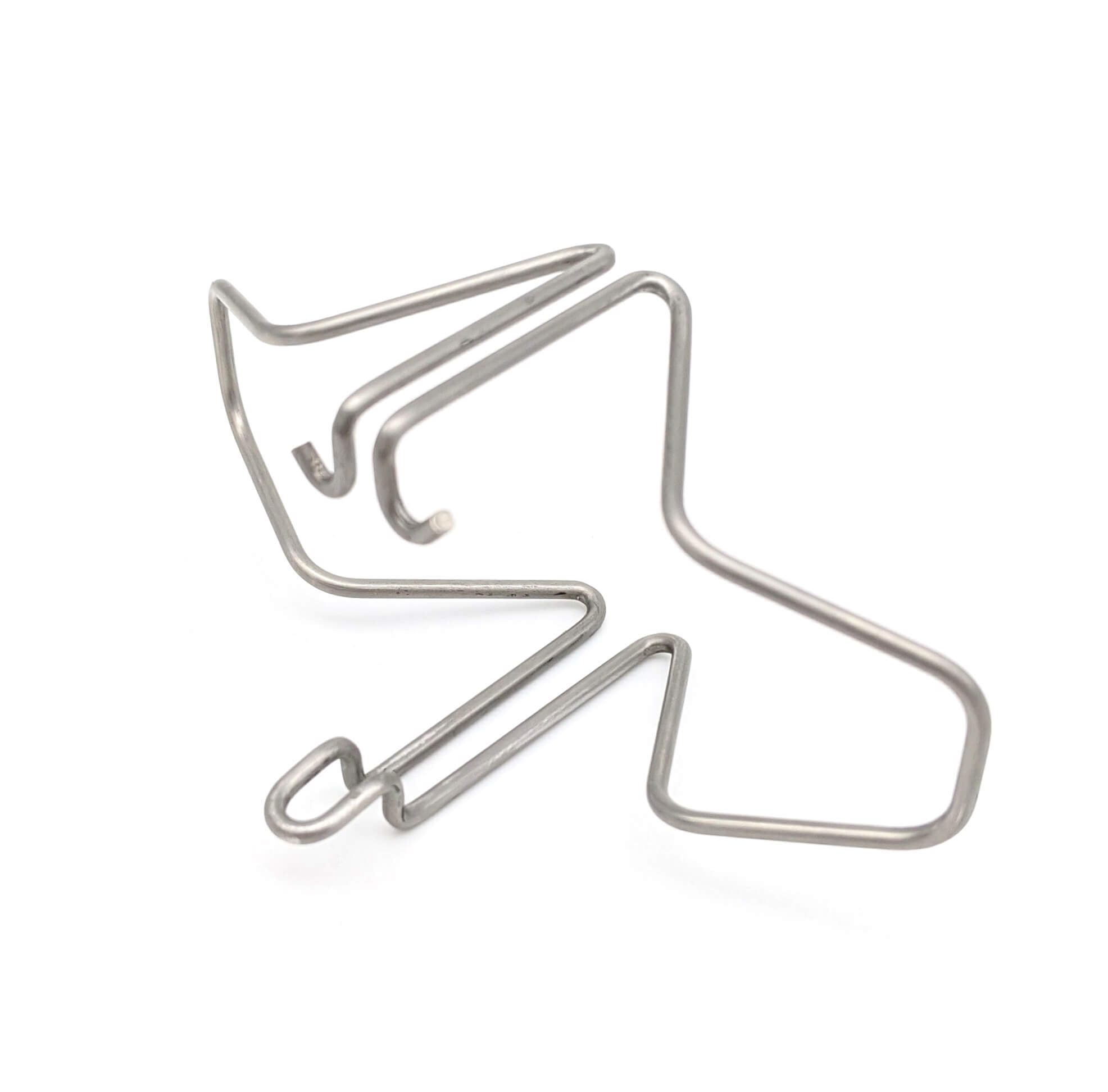Get unique, complex parts easily. No matter your requirements, Chaoyi Spring creates hard-to-produce coil springs and wire forms.
Let us help you create the custom wire form you need, from S-hooks and J-hooks to utility hooks and more.
We work closely with customers across a wide range of industries, helping them design and manufacture made-to-order parts.
Why choose Chaoyi Spring? We prioritize customer-focused collaboration, modern equipment and the latest technology to make your parts per print.
Find the information and guidance you need, from measuring a spring to learning about materials, placing an order and much more.
Ever struggled to compress a coil spring? It can be a frustrating and potentially dangerous task if you don't have the right tools. That's where a coil spring compressing tool


Ever struggled to compress a coil spring? It can be a frustrating and potentially dangerous task if you don't have the right tools. That's where a coil spring compressing tool comes in. These specialized tools make the job a breeze, allowing you to safely and efficiently compress springs for various applications. Whether you're a mechanic, a DIY enthusiast, or just need to fix a broken spring, this guide will walk you through the world of coil spring compression tools, explaining their types, features, and how to choose the perfect one for your needs.

A coil spring compressing tool is a mechanical device designed to compress a coil spring safely and effectively. It provides a controlled and secure method for compressing the spring, preventing it from springing back unexpectedly and causing injury. These tools are essential for any task involving the disassembly or repair of systems containing coil springs, such as automotive suspension systems, industrial machinery, and even household appliances.
Coil spring compressing tools come in various shapes and sizes, each designed for specific applications. Here are some of the most common types:
The C-clamp spring compressor is a basic and widely used tool. It consists of two arms that clamp onto the spring, allowing you to compress it by tightening a screw mechanism. This type is simple to use and relatively inexpensive, making it ideal for smaller springs and basic applications.
A two-arm spring compressor features two arms that spread apart and clamp onto the spring. These arms are connected to a central mechanism that allows you to compress the spring by rotating a handle or using a hydraulic pump. This type offers greater stability and control than the C-clamp compressor, making it suitable for larger and heavier springs.
Hydraulic spring compressors utilize a hydraulic system to compress the spring. They offer a more powerful and precise compression force, making them ideal for extremely heavy springs and demanding applications. The hydraulic system allows for gradual and controlled compression, ensuring safety and minimizing the risk of damage to the spring.
For situations where you need to compress a spring inside a confined space, an internal spring compressor is the answer. These tools feature a central shaft that extends into the spring and compresses it from the inside. They are commonly used for compressing springs within automotive shock absorbers, for example.
Selecting the correct coil spring compressing tool for your task is crucial. Consider these factors:
The spring's size and load capacity determine the type of tool you'll need. Smaller, lighter springs can be compressed with a simple C-clamp compressor, while larger, heavier springs require a more robust two-arm or hydraulic compressor.
The specific application dictates the tool's features and capabilities. For example, if you're working on a car's suspension, a two-arm spring compressor is a common choice, while internal spring compressors are often used for compressing springs within shock absorbers.
Safety should always be a top priority when working with springs. Choose a tool that offers features like secure clamping mechanisms, adjustable compression settings, and robust construction to minimize the risk of accidents.
Once you've chosen the right tool, it's essential to use it safely and effectively. Here are some key tips:
Before you start, make sure you have a clear work area and the necessary safety gear, such as gloves and eye protection. If you're working on a car, ensure the vehicle is safely supported on jack stands.
Position the spring compressor securely onto the spring, ensuring that the clamping arms are properly aligned and engaged.
Compress the spring gradually, avoid sudden movements that could cause the spring to spring back unexpectedly.
When releasing the spring, do so carefully and slowly, ensuring that the tool remains secure until the spring is fully extended.
To ensure the longevity of your coil spring compressing tool, regular maintenance is key. Keep the tool clean, lubricated, and inspect it for any signs of wear or damage. If you notice any issues, repair or replace the tool promptly to prevent accidents.
A coil spring compressing tool is an indispensable tool for anyone working with coil springs. By understanding the different types, features, and safety procedures, you can choose the right tool for your needs and safely complete your projects. Remember, always prioritize safety and follow the manufacturer's instructions carefully when using any spring compression tool.
Now you're equipped with the knowledge to tackle spring compression tasks confidently and safely. With the right tool and proper technique, you can compress even the most stubborn springs without any trouble. Happy compressing!
Browse some of the custom wire forms and springs that we manufacture. Don’t see what you need? We specialize in made-to-order products that meet your application requirements.
Visit Our GalleryNeed a custom wire form or coil spring? We make it work. Fill out the contact form and a representative will respond within 1 business day. If you have a PDF or CAD file, you can submit to request a quote.